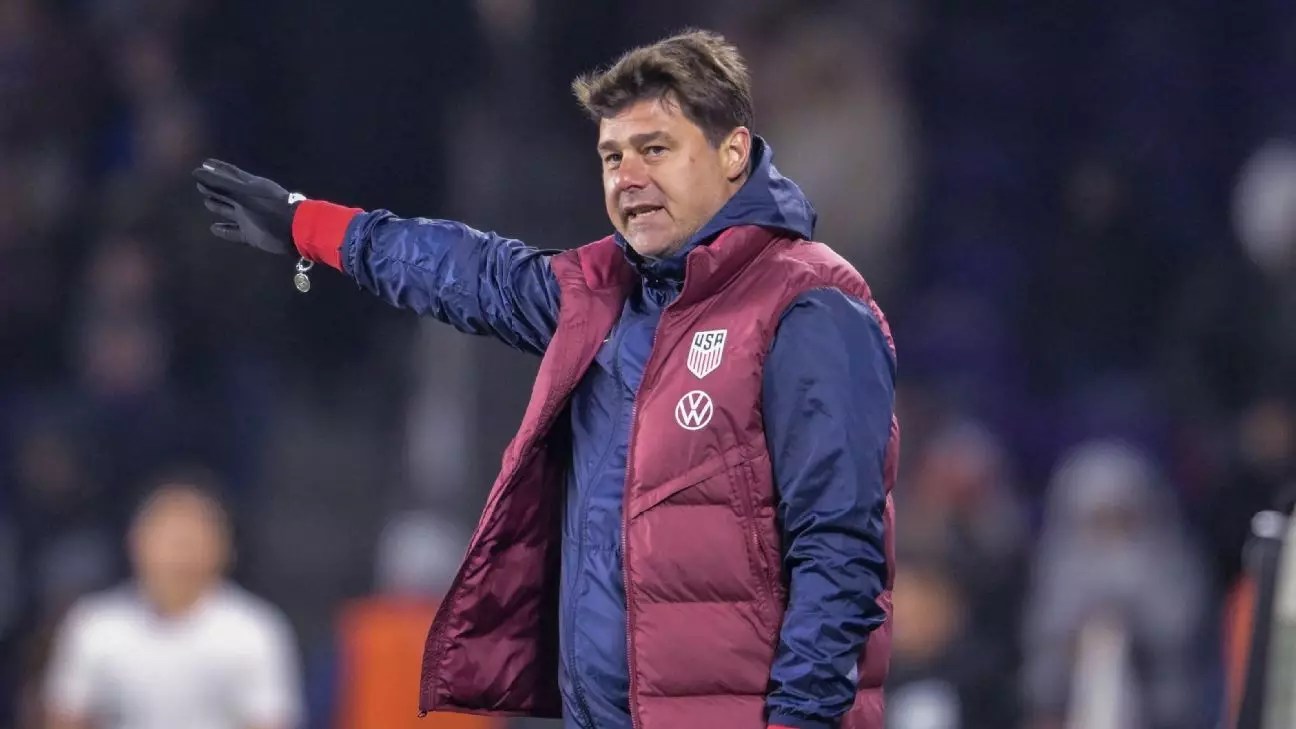When discussing the future of the United States men’s national soccer team, one cannot overlook the enigmatic figure of Mauricio Pochettino. Known for his transformative impact on Tottenham Hotspur, Pochettino is not just a name in football management but a legacy that still echoes within the famed walls of Spurs. Although he has charted a course through various high-profile clubs, including Paris Saint-Germain and Chelsea, the pull towards Tottenham remains undeniable. His recent remarks solidify this sentiment, revealing a deep connection that can’t be dismissed.
Timing: The Unforgiving Maestro
In football, timing is everything, a lesson ingrained in Pochettino’s philosophy by Spurs chairman Daniel Levy. While Pochettino acknowledges the potential for a reunion with Tottenham, he deftly summarizes the situation with one simple word: timing. Just as orchestras require precise synchronization, so do managerial opportunities in football. The tantalizing question looms: can Pochettino truly maintain his passion for Spurs while grappling with the immediate responsibilities of leading the U.S. national team through a pivotal World Cup?
Pochettino’s assertion that he “would like one day to come back” paints a picture of hope for Tottenham fans. Yet, it raises concerns about the future of the club under its current managerial regime. Under Ange Postecoglou, Tottenham seems to be wrestling with its identity, and the specter of Pochettino’s return may serve as both a motivator and a burden for its present administration.
The Evolution of Pochettino: The Journey from North London to National Leadership
Pochettino’s trajectory has been a remarkable narrative—one that showcases growth, resilience, and the complexities of football management today. From leading Spurs to their first-ever Champions League final and elevating player performance to unparalleled heights, his time in London was nothing short of transformational. Now, standing at the helm of the U.S. men’s national team, he faces a new set of challenges that demand a completely different approach. His vision for developing young American talent could reshape the future of soccer in a country that is gradually finding its footing on the global stage.
While the lure of a return to Tottenham might seem like a romantic notion to fans, it poses questions about Pochettino’s long-term ambitions. Would he sacrifice the opportunity to instill a winning mentality in American soccer for a nostalgic coaching stint in North London? Or can he strike a balance between his current responsibilities and a future back at Spurs?
Culture, Loyalty, and Identity
Football, more than just a game, involves an intricate dance of culture, loyalty, and identity. Pochettino’s time at Tottenham was marked by a unique spirit that revitalized the club and forged a deeper bond with the fans. His candidness in expressing a desire to return reflects a mutual admiration that transcends mere job titles. The question arises: can that same magic be replicated today, amidst managerial changes and evolving player dynamics?
In Pochettino’s heart, Tottenham is more than a stepping stone; it is a part of his very fabric as a coach. His future, intertwined with both the United States and Spurs, highlights a fascinating narrative of dual devotion. It opens up reflections on how loyalty and ambition can coalesce in the high-stakes arena of sports. As fans and analysts alike ponder these intricate layers of timing and choice, one can’t help but wonder—what will the future truly hold for Mauricio Pochettino?


Leave a Reply